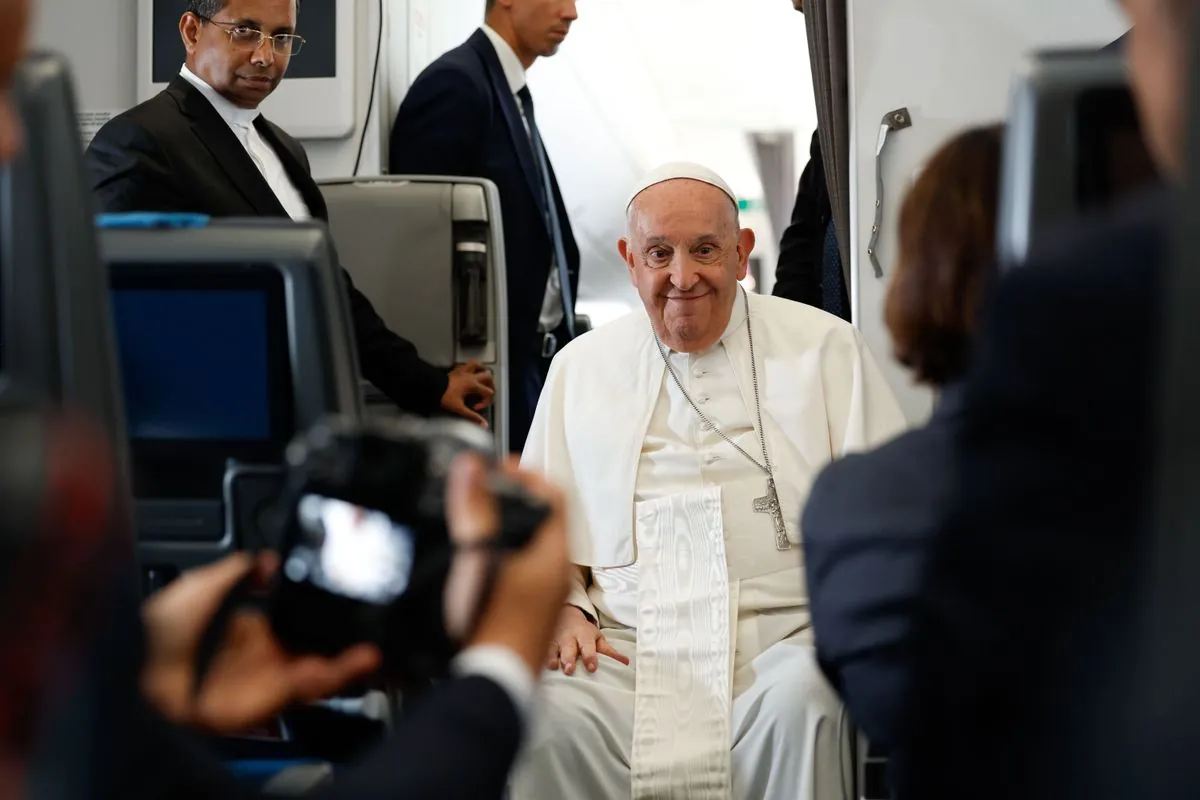Pope Francis recently shared his positive outlook on China during a press conference concluding his four-nation Asian tour. The pontiff's remarks come as the Vatican approaches the final stages of negotiations to renew a 2018 agreement concerning bishop nominations in China.
"China for me is an illusion, in the sense that I want to visit China. A great country. I admire China. I respect China. It's a country with a millennial culture, with a capacity for dialogue and understanding that goes beyond other systems of democracy."
The Pope expressed satisfaction with the ongoing dialogue between the Vatican and China, describing the process as conducted in good faith by both parties. This optimism comes despite the complex history between the Catholic Church and China, which has seen official relations severed for over seven decades.
The Catholic Church's presence in China dates back to the 13th century, with an estimated 12 million Chinese Catholics today. However, this community is divided between state-recognized and underground churches, a situation the Vatican aims to address through improved relations.
The 2018 agreement, which sought to find common ground on the contentious issue of bishop appointments, has been a subject of debate within the Catholic Church. Critics, particularly American conservatives, have accused the Vatican of compromising the faith of underground Catholics who have faced persecution.
Despite these challenges, Pope Francis remains hopeful about China's role in the future of the Catholic Church. He stated, "China for me is a promise and a hope for the church," highlighting his desire to visit the country and his admiration for its cultural heritage.
The Vatican's efforts to improve relations with China are part of a broader strategy to enhance interfaith dialogue and global diplomacy. As of 2024, the Holy See maintains diplomatic relations with 183 countries, showcasing its significant international influence despite being the world's smallest sovereign state.
The ongoing negotiations and Pope Francis' recent comments reflect the complex interplay between religion and politics in China. The Chinese government's promotion of "Sinicization" of religion and its strict control over religious activities present ongoing challenges for the Catholic Church's operations in the country.
As the Vatican and China continue their dialogue, the outcome of these negotiations could have far-reaching implications for the estimated 12 million Chinese Catholics and the future of the Catholic Church in one of the world's most populous nations.
